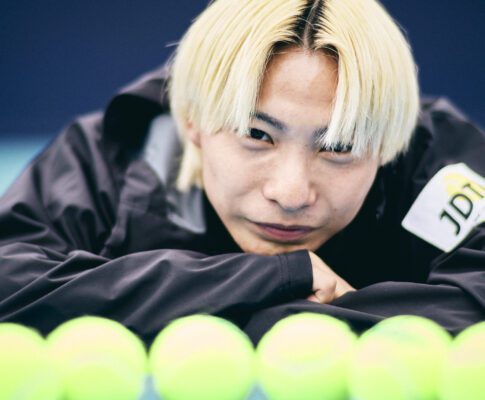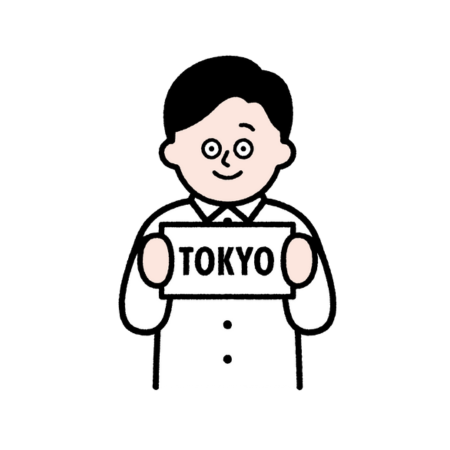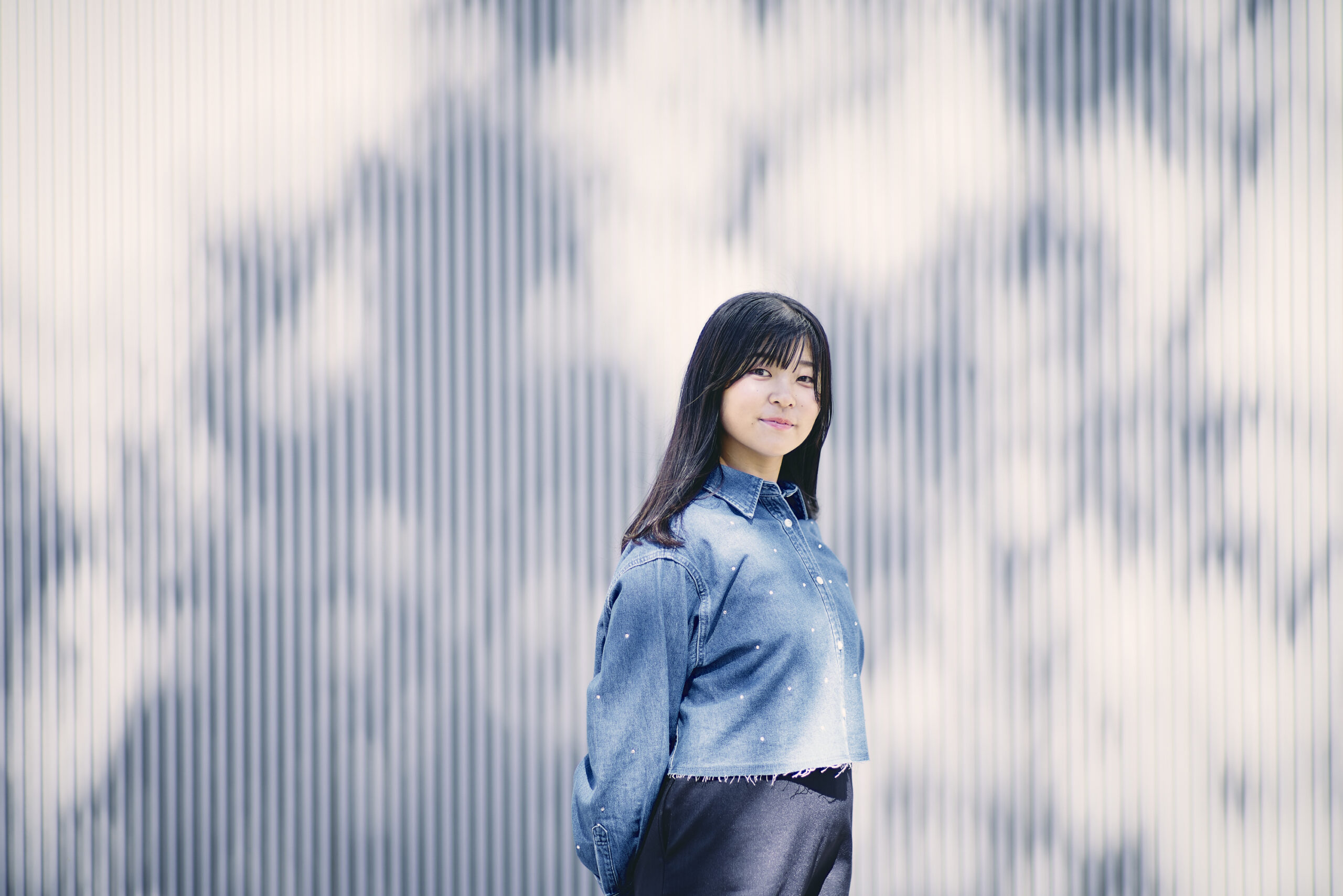
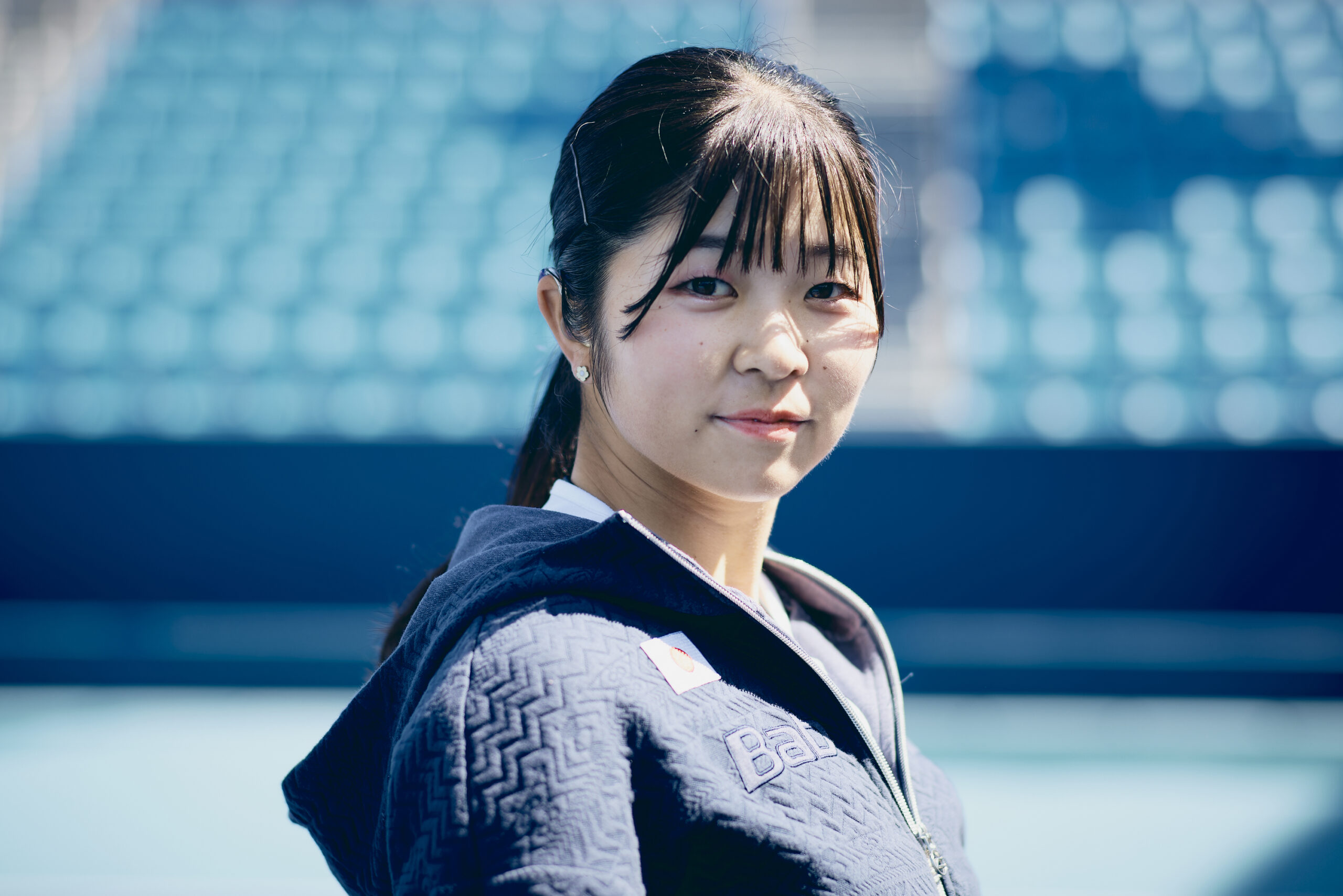
Rina Komokata
Born in Mie Prefecture in 2002. Senior at Doshisha University.
She has a congenital hearing impairment and wears a hearing aid for her life. She started playing tennis at the age of 6, and after attending Mie Prefectural Yokkaichi Commercial High School, she is currently the head of the tennis club at Doshisha University. She represented Japan at the World Deaf Tennis Championships in Greece in 2023, winning the women’s singles and doubles titles. She was proudly selected as the No. 1 in the world ranking for the Australian Open Deaf & Hard of Hearing Championships in January 2024, in which only eight selected players will be able to compete. With a singles championship and a doubles runner-up finish, she is truly the “Queen” of the world of deaf tennis. She is aiming to win her remaining title at the Tokyo 2025 Deaflympics, where she will be competing for the first time.
Stay as calm and cool as possible.
――Please tell us how you started playing tennis.
I started playing tennis when I was 6 years old, influenced by my mother who played tennis as a hobby. I wasn’t particularly good at it at first. At the time, I was also learning swimming, and wasn’t sure which to continue. I don’t have long arms and legs, and am left-handed, so I chose tennis over swimming because I could make the most of it!
――What is your style of play and what are your strengths, Komokata-san?
I am not a particularly habitual player, and I consider myself all-around in a good way. I am the type of athlete who connects rallies without hitting forcibly, and who waits until I get a chance to hit and then hits when I should. My strong points are shots that I hit from above, such as serves and smashes.
――What do you think about while playing?
Well, I am looking to see where the opponent’s weaknesses are. What I try to keep in mind is to play surely without wasting time, and to be level-headed. I am easy to get nervous, so try to be as calm and cool as possible.
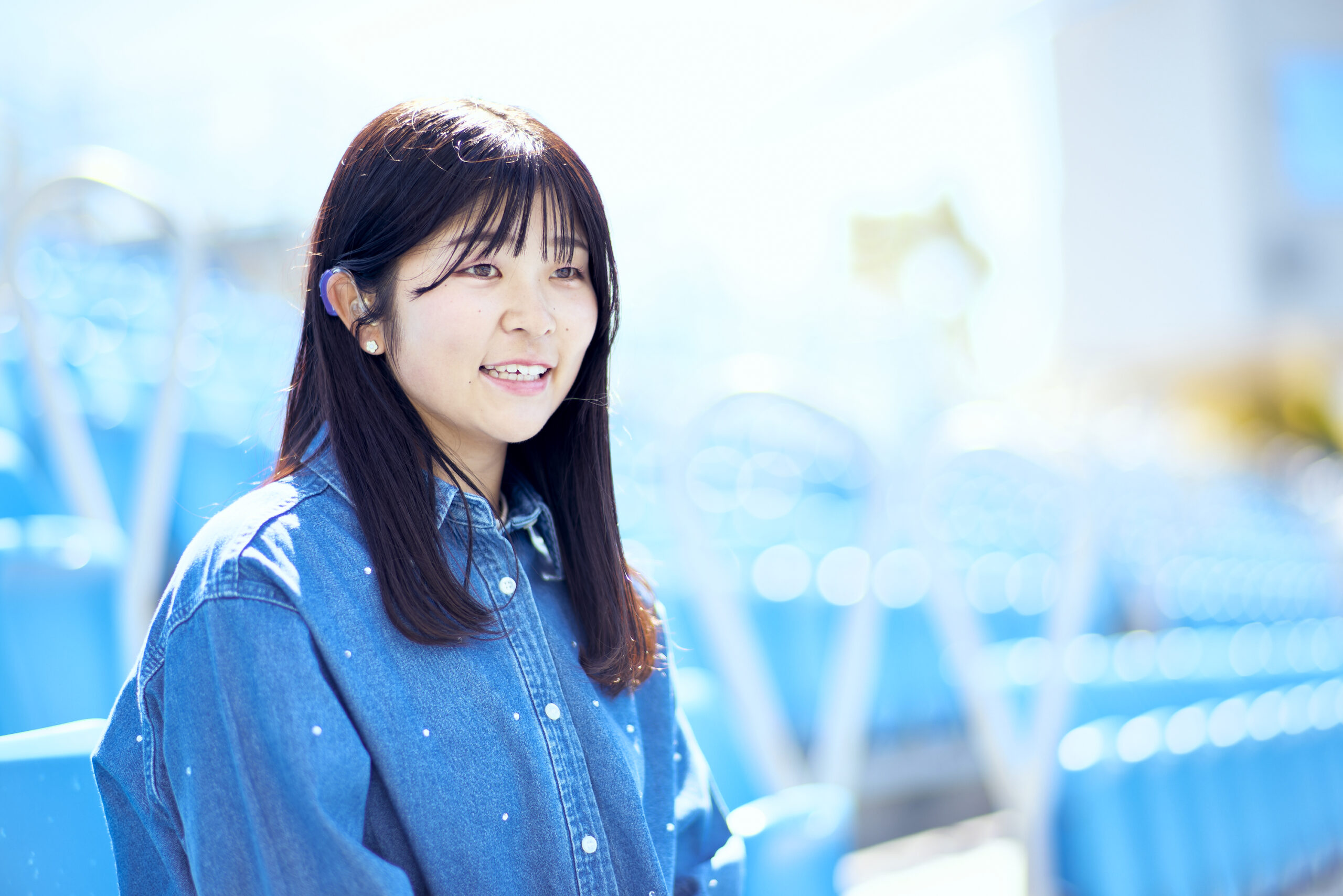
Her strengths are in all-around playing style.
――I think there are times when your opponent hits tough shots or puts you in a corner. How do you play in such situations?
I am thinking that if I return it to the court, something might happen anyway. For example, it might hit the net and fall into the opponent’s court, and something lucky like that might happen. I believe in those possibilities, so I just persistently return the ball, even if it is in the middle of the court. I play with that kind of mindset when I am in a corner. I run as hard as I can to pick up shots that I may or may not be able to pick up, and I try to pick them up wherever I can. I am a tenacious type of person who waits patiently for opportunities, so I never give up.
――You play both singles and doubles, and is there any difference in the way you feel about playing?
Singles is a fun match where you can freely carry the match at my own pace. Singles is where I want to get results, but it’s doubles that I enjoy playing. I think that is because we are working together. But both matches are fun when we’re winning matches. When I can play the way I want, and the match moves quickly, it is nothing but fun!
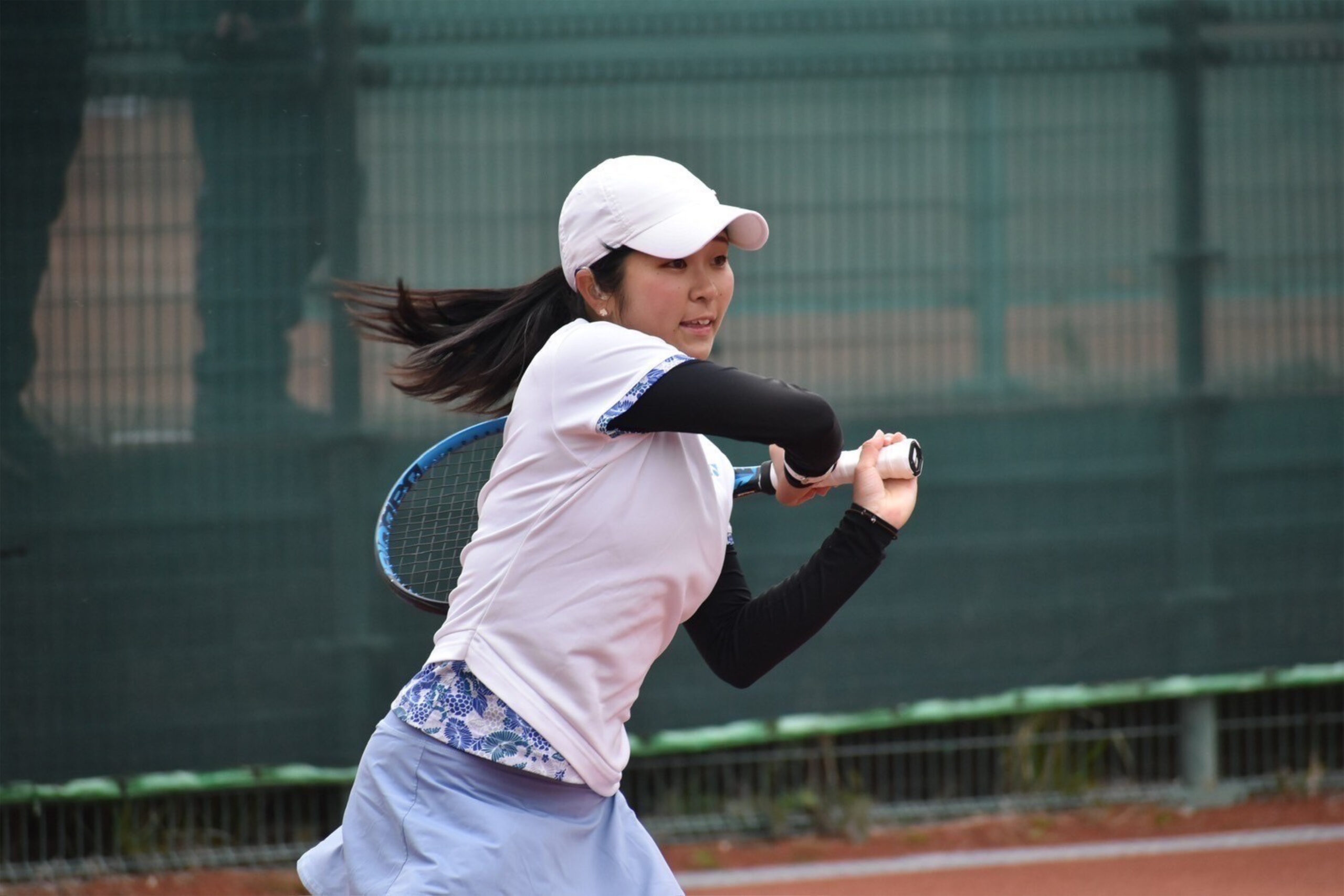
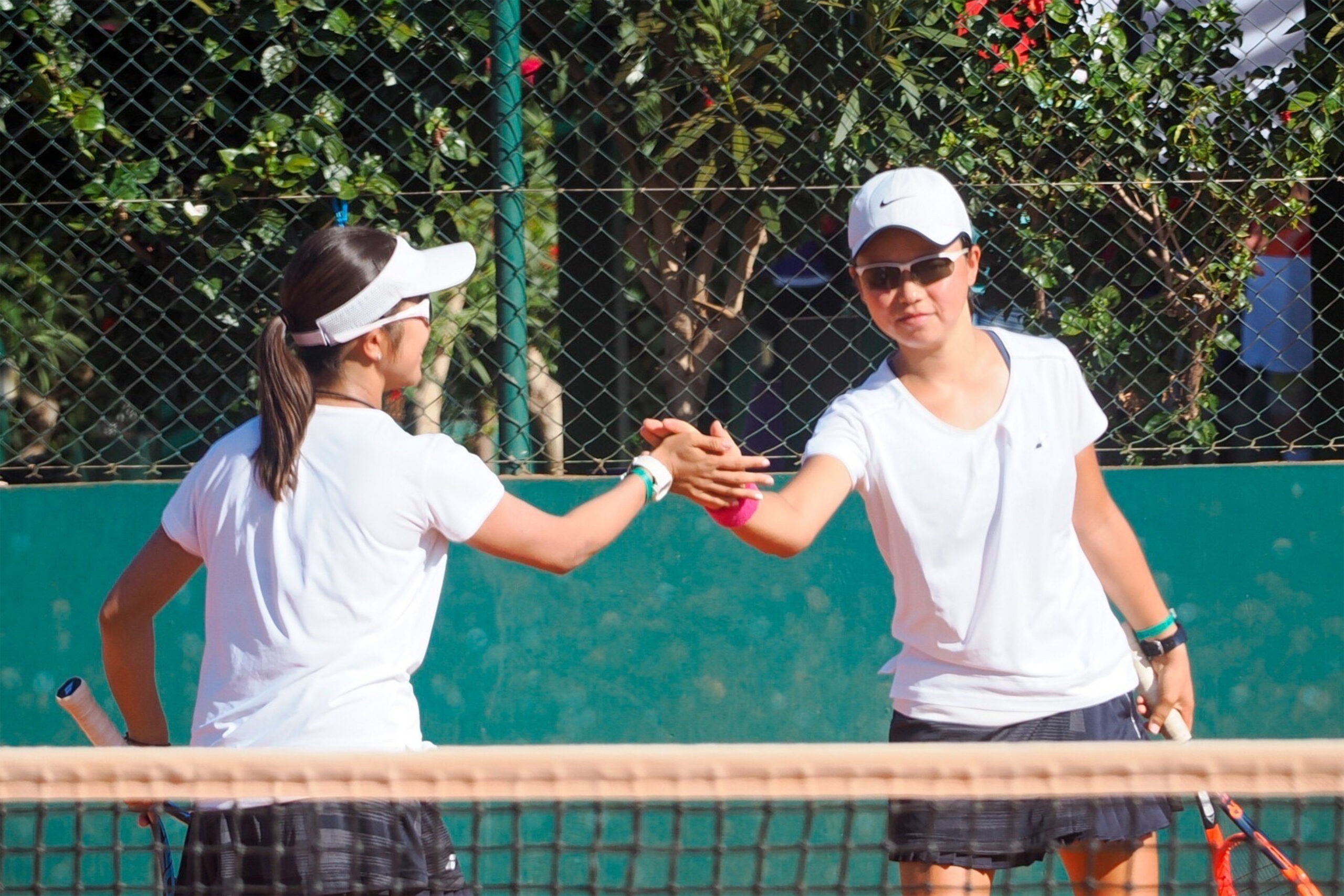
and doubles, where you can join forces, are fun.
*Courtesy of Rina Komokata
A desire for the “next” during the coronavirus pandemic
――Have you ever wanted to quit playing tennis?
I never seriously wanted to quit, but when I lost all my matches in my senior year of high school due to the coronavirus pandemic, I lost motivation…The last national competition in high school was canceled, and I could not get the results I wanted. But that experience made me want to work a little harder to achieve results. So I decided to continue playing tennis in my university.
――If, as a hypothetical, the last high school competition was held and you had a satisfactory result there, would you have quit?
That was a possibility. The last year of high school was a time when I was getting a good response in my own way, and I kept thinking, “What would have happened if there had been matches then? The desire to try my strength and know the results has led me to continue playing tennis in my university.
――What motivates you to continue playing tennis?
They are the people and environment around me, including my mother who has always supported me. The love of tennis. I think it would be hard for anyone to beat me on this! The other thing that drives me most is that I want to experience more of that “fun” because it becomes even more enjoyable as I achieve results.
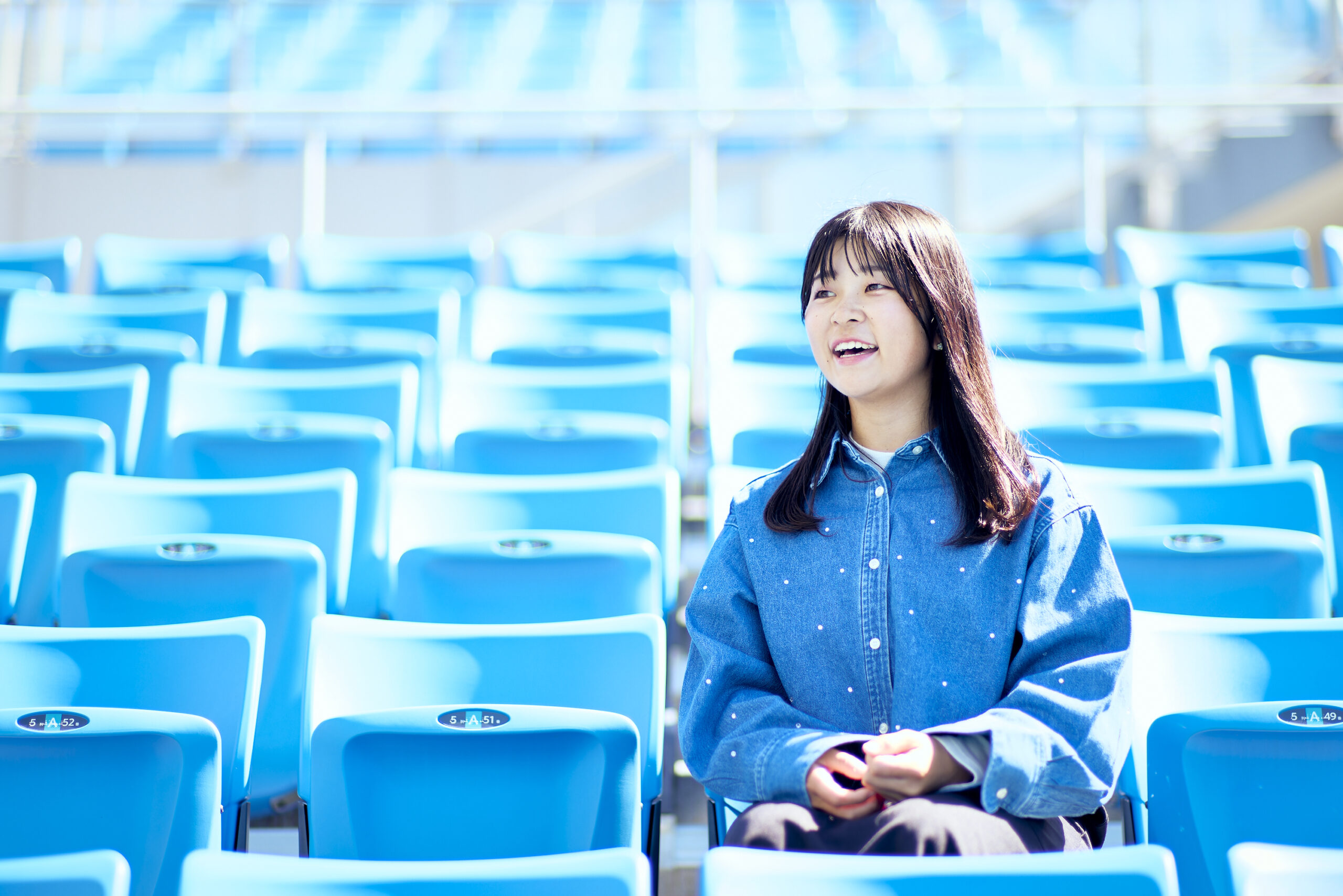
First Japanese winner of the Australian Open Deaf & Hard of Hearing Championships!
――When did you start playing deaf tennis?
That was when I was in junior high school. When I participated in a general junior competition, there happened to be a camp of deaf tennis players at the same venue. The director and coach there saw my matches and approached me. When I tried deaf tennis, it was kind of difficult at first. However, I remember very much the joy of discovering the new world of deaf tennis.
――Deaf tennis is played without hearing aids. Were there any difficulties in that regard?
Singles is a battle against myself, so I don’t find it particularly difficult even if I can’t hear a sound. On the contrary, that has helped me to concentrate better. But in doubles, it’s difficult to communicate during the match. Since decisions are based on sight alone, you cannot see the net player’s movements when you are a baseline player, and even if you are a net player, you cannot call out to the baseline player. I think it must be more frustrating than you can imagine for the players who can hear, to follow the ball and the opponent’s movements and respond to them…Therefore, I closely check the strategy with my partner not only during practice, but also before and after the match.
――Last January, you participated in the Australian Open Deaf & Hard of Hearing Championships. How was the atmosphere at the venue?
The excitement was totally different from my usual competitions! There were semi-finals and finals of the professional division before our Deaf & Hard of Hearing division, and our matches were just as exciting with as many spectators as there were then. Playing in that environment is not easy in deaf tennis, and it was truly a valuable experience for me. It was also a lot of fun for me to be able to play at a venue which I had previously only seen on TV.
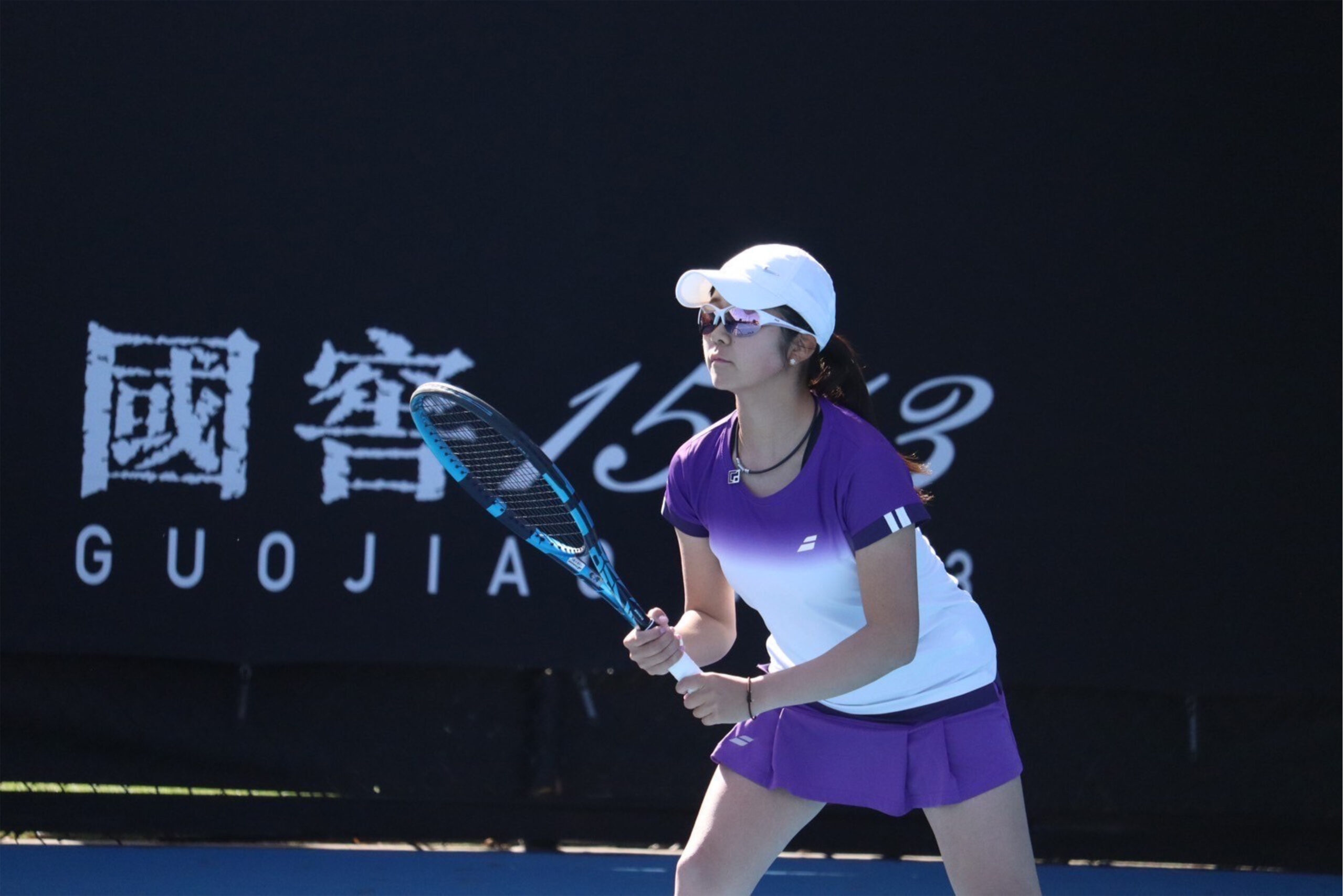
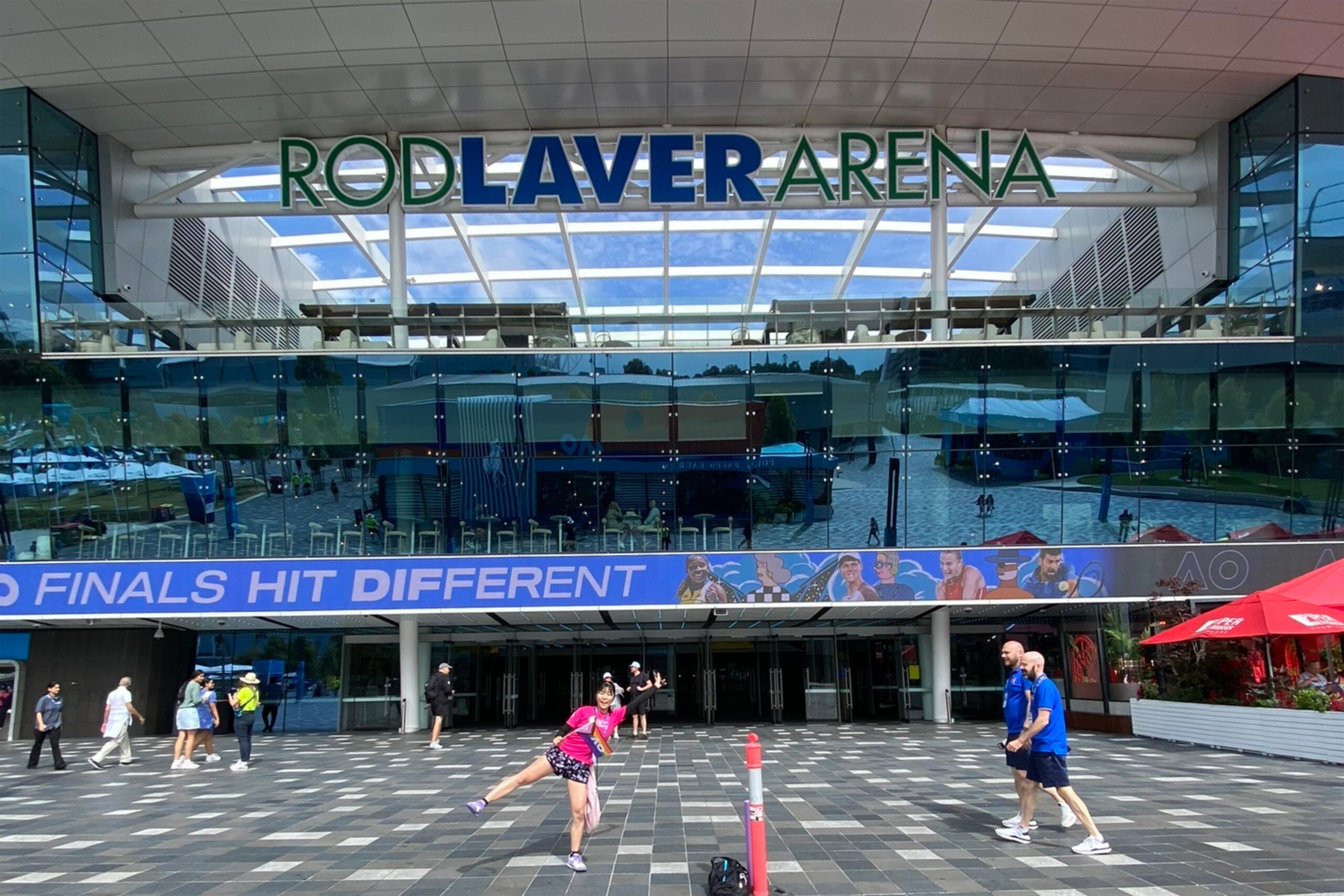
She showed an impressive performance that she ranked No. 1 in the world.
Photo below shows the main venue, Rod Laver Arena
*Courtesy of Rina Komokata
――You played at the venue which you have watched on TV and won the singles championship. It is a great accomplishment that it is the first time a Japanese player has won the singles championship. How did you feel when you won?
Having won the World Deaf Tennis Championships in Greece last September, I was even more eager than usual to win the Australian Open. That made me very nervous at the match, so I was relieved in a good way when I won. I was very happy to be the first Japanese to win the championship and to leave my name in the history books.
――In doubles, she teamed up with Isabele Cairns from Australia to take second place. You mentioned earlier that doubles are difficult to communicate with, how did you communicate with her?
Since our native languages are different, it was more difficult than usual to communicate with each other. I don’t usually use sign language that much and neither does she. However, even if we had used sign language, it might have been difficult because Japanese sign language is different from international sign language. So communication is simple English mouth-to-mouth and gestures! We both had the same goal, and we had a common understanding that we would do what we could do. Besides, I tried to play with a smile and have fun, and we were able to win the second place. This result was great, but I was also happy that Isabele, who is only 12 years old, enjoyed playing.
――I heard that you actually had a high fever during the final of the World Deaf Tennis Championships last year. How did you compete when you were not in perfect physical condition?
It was a very tough situation, but during the game I was focused on wanting to play to the end. Perhaps it was a good thing that I thought about how to play the game more than usual so that I could win easily because my body was not good. As a result, I set up early to avoid a long rally, which worked well, and my opponent made many mistakes. It has turned out the way I thought it would. Looking back, I think it was my strong awareness of the need to be mindless and chase the ball in front of me and do what I had to do that enhanced my concentration. Thanks to this match, I began to think carefully about how I should play according to my condition.
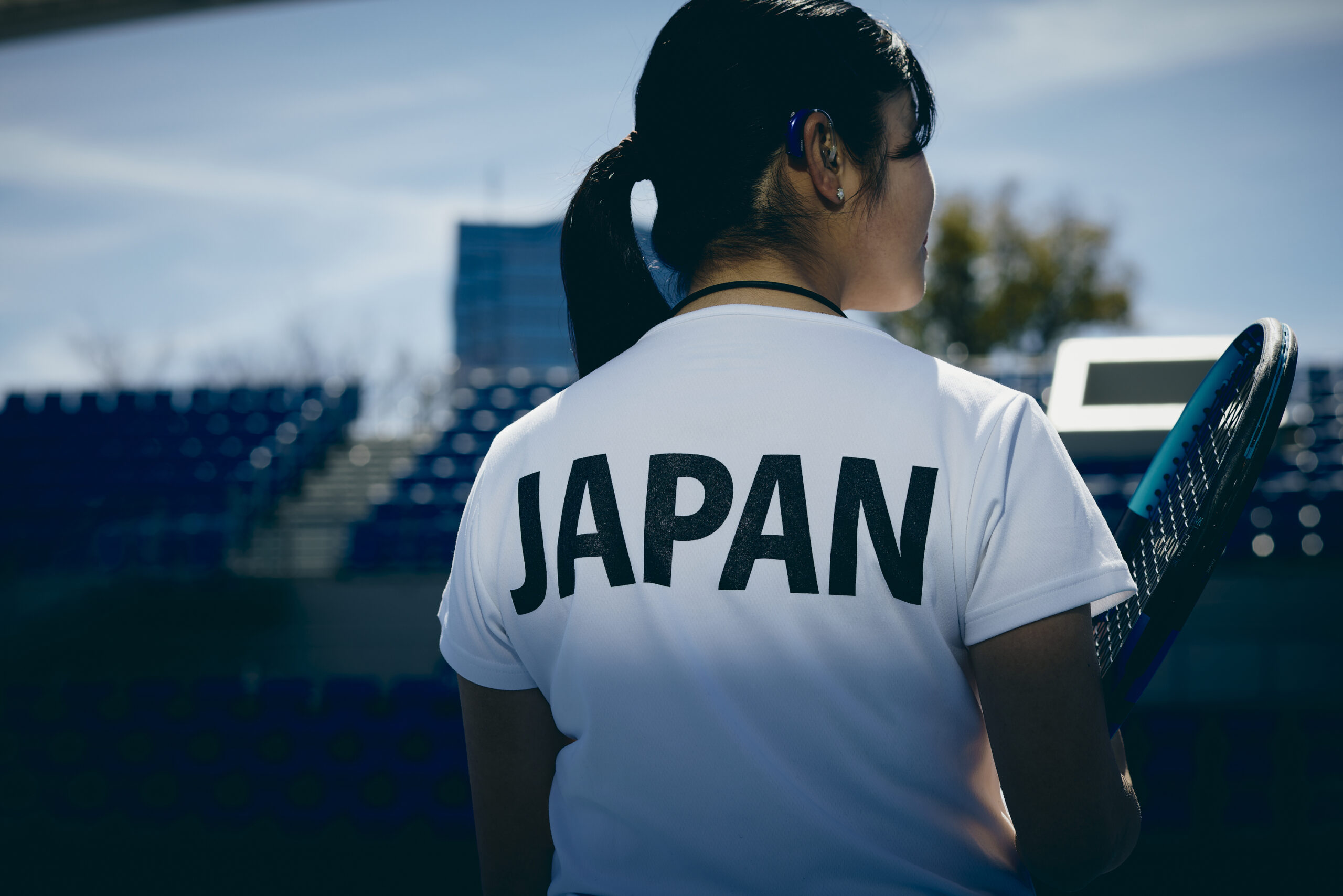
――When did you feel that you were ready to compete on the world stage?
I was a sophomore in high school when I competed in the World Deaf Tennis Championships in Turkey for the first time. We lost the singles early, but we were able to win the doubles championship. Through that competition, I was able to get to know the players competing in the world and experience firsthand the level of competition. Gradually, I began to understand my playing style and pace, and it was during my second year of university that I began to gain confidence. In the summer of 2023, I had a sense that I was moving in the right direction, so I felt that the World Deaf Tennis Championships in Greece was in good hands, and I had a good chance of winning.
――In what situations did you feel your confidence growing?
When I was a sophomore in my university, I competed in an intercollegiate qualifier for the first time, and I was able to play against a higher-ranked player. I strongly felt that my tennis was growing. Around that time, I began to be selected as a member of the university league, so I felt recognized by others, which also boosted my confidence.
――Are there any players you admire or aim for?
It is Novak Djokovic. I admire his all-around ability and the way he plays in a way that is pleasant to watch. Lately, I have also become more conscious of “entertaining the viewer”. As a representative of deaf tennis, I hope my play will bring a little interest to the match! Also, I have been indebted to many people, and I always hope to repay them through tennis.
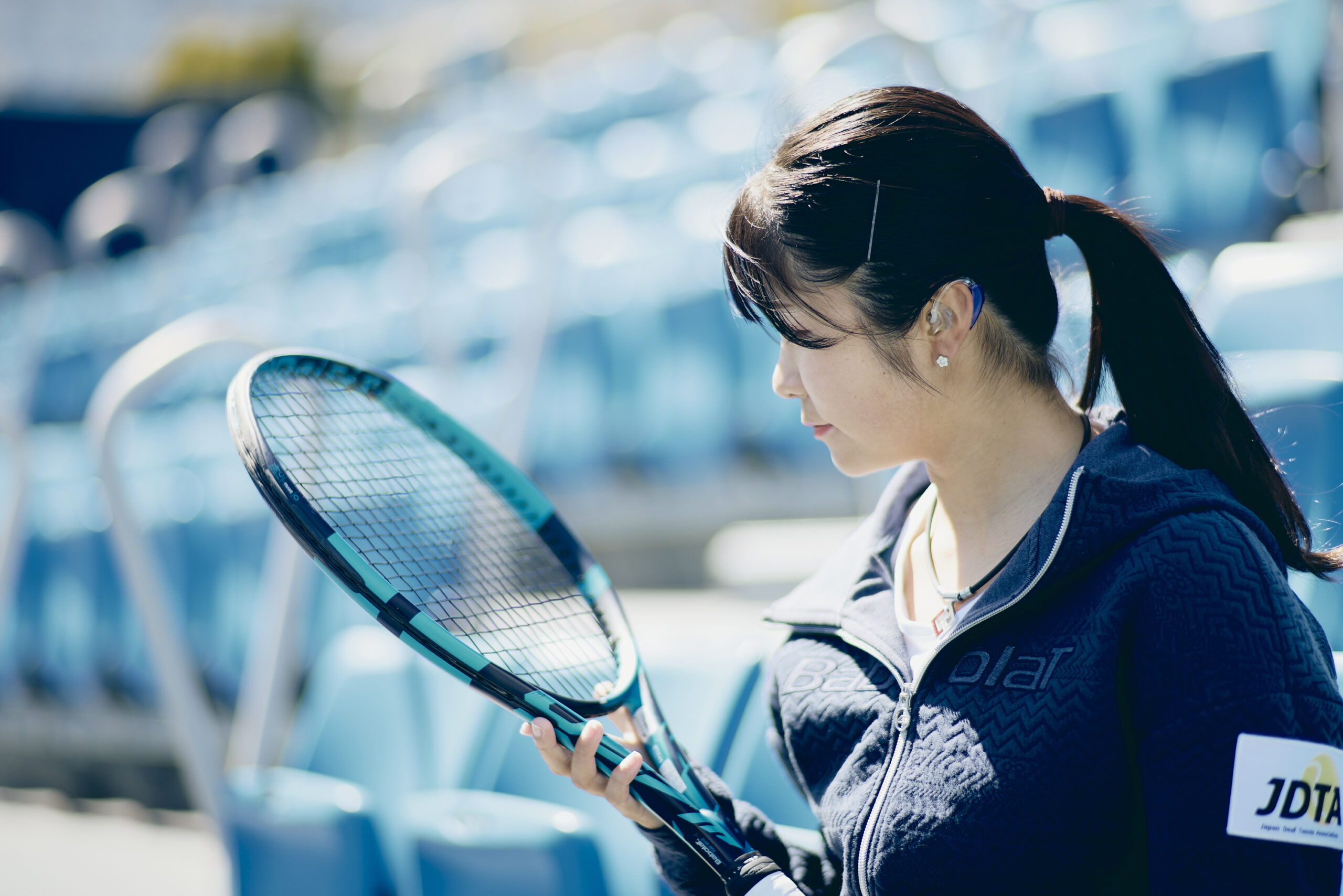
All that’s left is the Deaflympics.
――When did you first learn about the Deaflympics?
I learned about it when I started playing deaf tennis during my junior high school. But at that time, I haven’t really thought about it yet, and it was in my sophomore year of high school that I made it a clear goal to compete in the Deaflympics. It started when I competed in the World Deaf Tennis Championships for the first time.
――The Deaflympics, which was one of your goals, will be held in Tokyo next year. What are you looking forward to?
Of course, being able to play at Ariake Tennis Park, one of the most famous tennis courts in Japan, but the best thing is that my friends, family, and people who are always very kind and helpful to me can come to cheer me on. I am also looking forward to the opportunity to interact with athletes from other sports! I am excited that I may talk with people I am currently only connected with on SNS, and I am looking forward to those encounters as well. I really can’t wait for 2025!
――What kind of play do you want to show at the tournament, where many people will come to cheer you on?
I hope to be able to use more shots before the Tokyo 2025 Deaflympics. I have not been making many forward shots in singles, so I am working on to increase those. This will be my first tournament as a working adult, so I want to show that I am different from when I was a student. I want to show that I run and pick up the ball, chase the ball to the end, and never give up, as I always do. And I want to win the championship. The only other thing I haven’t won is the Deaflympics!
――Are there any rivals or players you are wary of in your quest for the championship?
It is Isabele who I played doubles with at the Australian Open. She is only 12 years old, but still very big, and I think it is the time for her to keep improving her techniques. I want to compete with her in a more mature way, and I definitely want to win.
――How do you feel about the 100th anniversary of this historic event being held in Japan, and being able to participate in it as a player?
We hope that holding the Deaflympics in Japan will bring attention to the Deaflympics and raise the profile of deaf sports. The most important thing is for me to be active myself to achieve this. I want to play in such a way that as many people as possible will find it “interesting” and grab the championship.
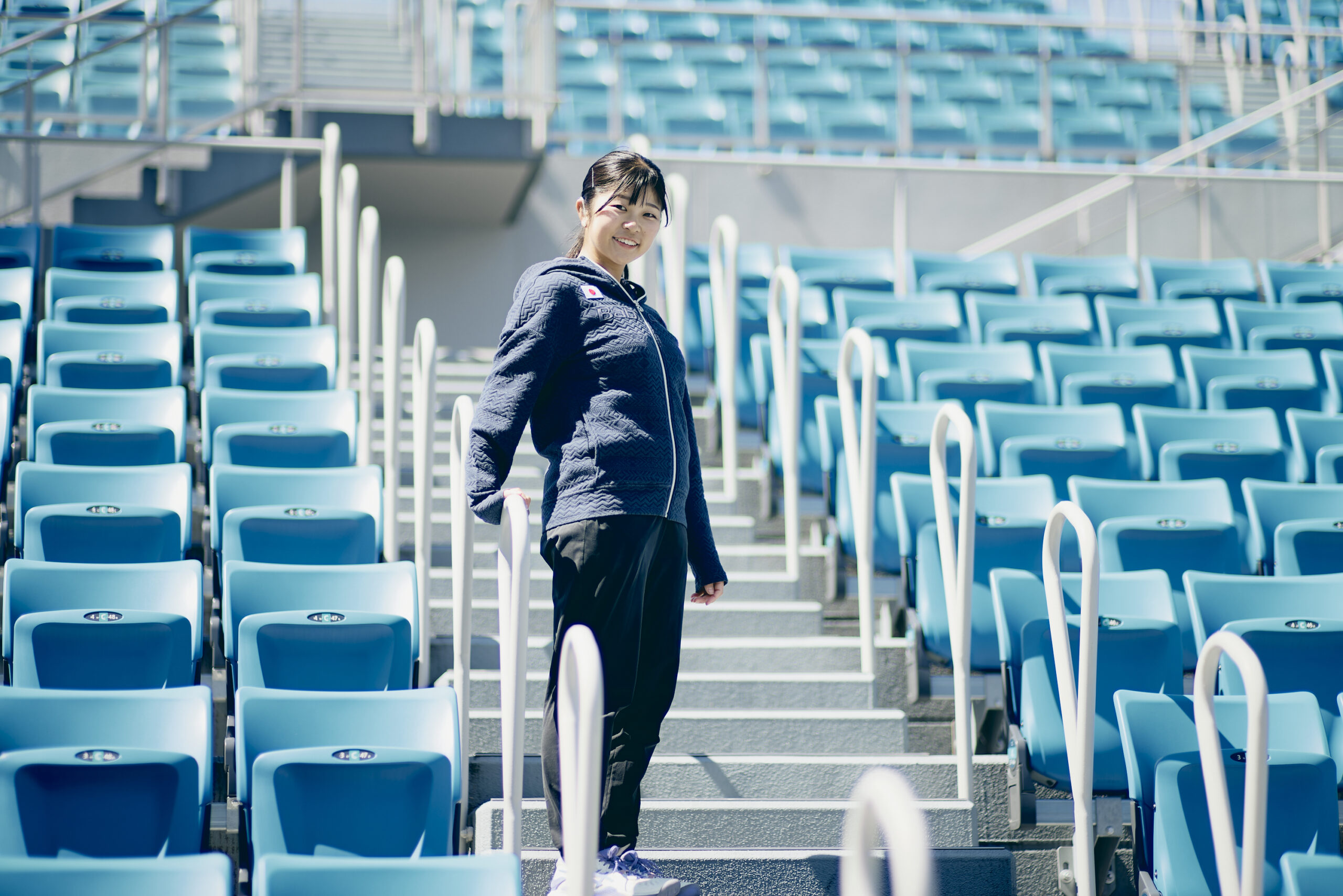
Active, sweet-tempered university student.
――Please tell us about your personal life from now on. What do you think about your own personality?
I do things at my own pace and am surprisingly a cleanly person. I’m not a neat freak, but I try to avoid places where everyone walks around with wet feet, so I don’t like hot springs or swimming pools. I’ve gotten over it now, but I used to hate eating Japanese hot pot together…
I am not very particular, but I am very sensitive when it comes to the looseness of the racket gut and the feel of the grip. I’m so sick of that obsession! Other than that, there’s really nothing else to be particular about.
――An indoor or outdoor person?
I’m a super outdoor person! It is not hard at all to go out to eat with friends after working part-time. The opposite of a homebody. If I have a day off, I feel that it would be a waste if I don’t go out for fun, so I make a lot of plans.
――You are currently a senior at Doshisha University, where you are also the captain of your university tennis club. What are you doing to bring the members of the club together?
We try to listen to the opinions of all members of the club, and we have a talk of them after every match. After putting together their opinions, I also come up with a practice menu. Our club activities are student-driven, and we decide our own menus and practices, so I am conscious of trying to respond to everyone’s opinions as much as possible. It’s very tough being a captain!
――Was there any reason why you chose Doshisha University?
I guess it is a “free” place in a good sense. The tennis club at Doshisha University is free to dye their hair, get piercings, and wear nail polish. One of the reasons I chose Doshisha University is that I can play tennis while living like a university student. Of course I devote myself to tennis, but I also enjoy my student life. I am very happy that I chose this university because I can realize this.
――Do you have any memorable moments from your university life?
BBQs and drinking parties with members of the same class…I had no male classmates until high school, so it was refreshing to have them in the university. I have a sparkling memory of my 20th birthday when we all decided to go out for drinks and had a blast together!
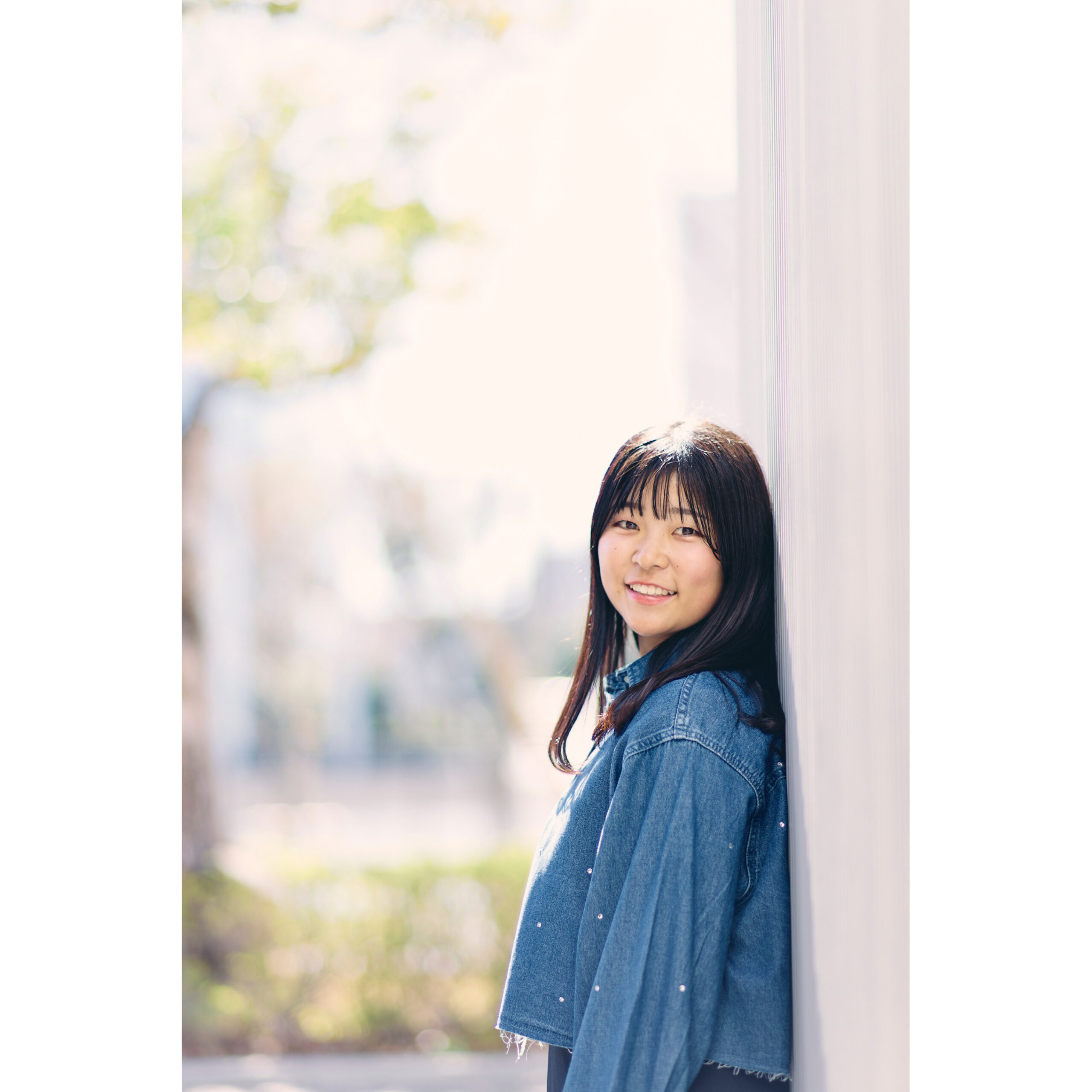
――Are you a strong drinker?
Yes…I am. My favorite drink is plum wine because it is easy to drink. I also drink beer, but I think highballs are less fattening, so I have been drinking a lot of highballs lately. When I am stressed, I go out for a drink with friends if I don’t have matches. When I drink and have fun, I sleep better, and as a result, I can beat tiredness. I have fun with my friends and go to bed, and when I wake up, I work hard again! That’s how I feel. I can do my best after having fun, so I can reward myself with seeing my friends and try harder next time.
――You are an active person, what do you do on your days off?
I like visiting cafes! A good one I recently visited was “FORTUNE GARDEN KYOTO” in Kyoto City. The atmosphere of the cafe is very nice and the pancakes are delicious! A bit pricey, but they are fluffy but not too fluffy…They are exquisite. There are many good cafes in Kyoto city to check out.
――Do you have a sweet tooth?
Yes, I do very much! When I was a child, I wanted to be a cake baker, and even now I sometimes make cheesecakes and pound cakes. But I’m careful because if I eat too much, I gain weight very quickly!
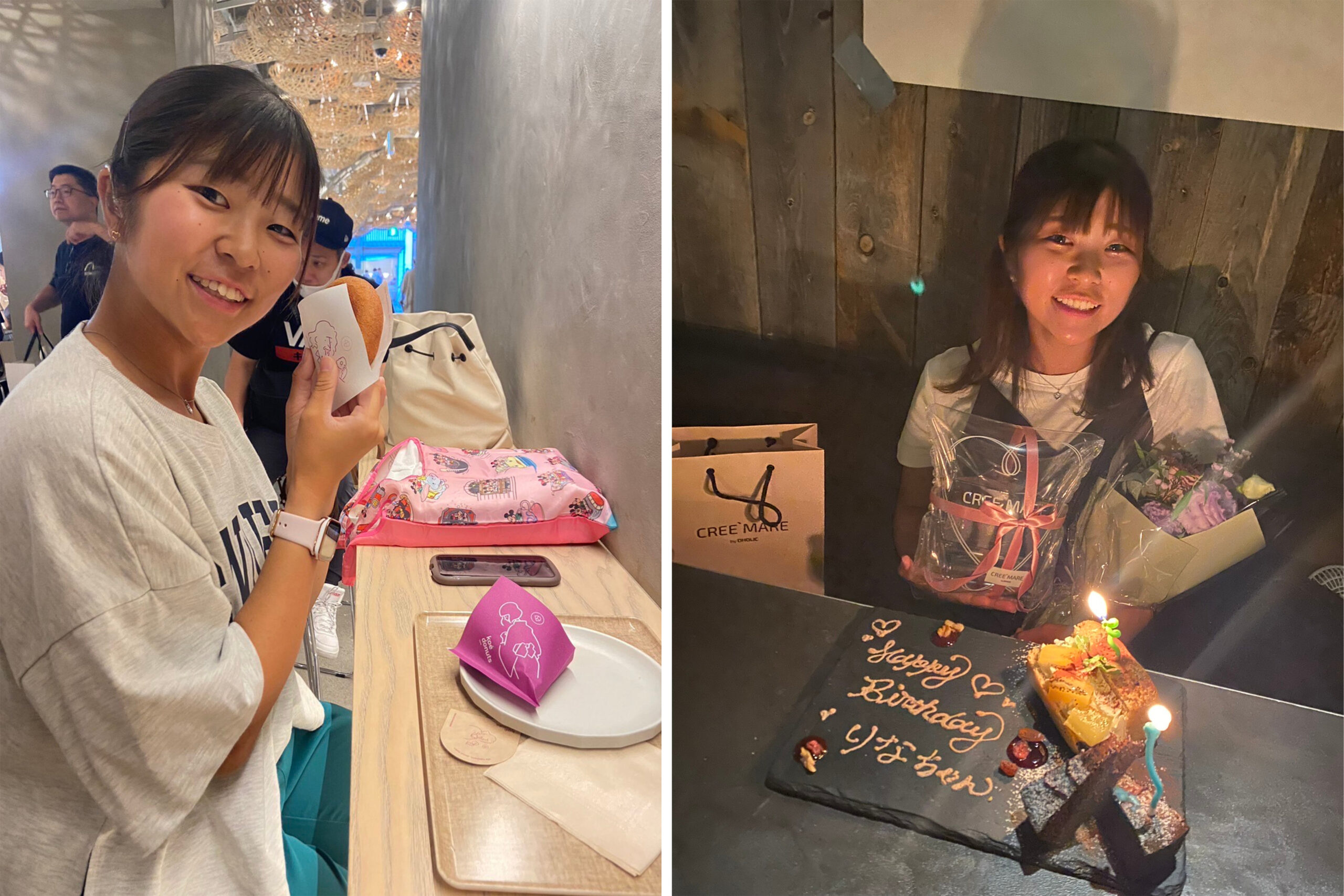
2025, the year she is aiming for with her deaf friends.
――You will be a senior this spring and this is your last year in college. Is there anything you are planning to do before graduation?
I want to learn more sign language. I don’t usually use sign language very often and I am not a good signer. If I can sign, I can relate to many different people and can help them in more ways. I want to study while I still have time and be able to use it well at the Deaflympics!
――Are there any athletes you would recommend competing in the Deaflympics with you?
It’s Riko Suzuki. She came in a little after I started playing deaf tennis, so we have known each other for a long time. We both know what kind of people we are, and it’s a pleasant existence where we don’t have to worry about each other. Riko has a very gentle nature and always listens to me. I am so glad to have her by my side.
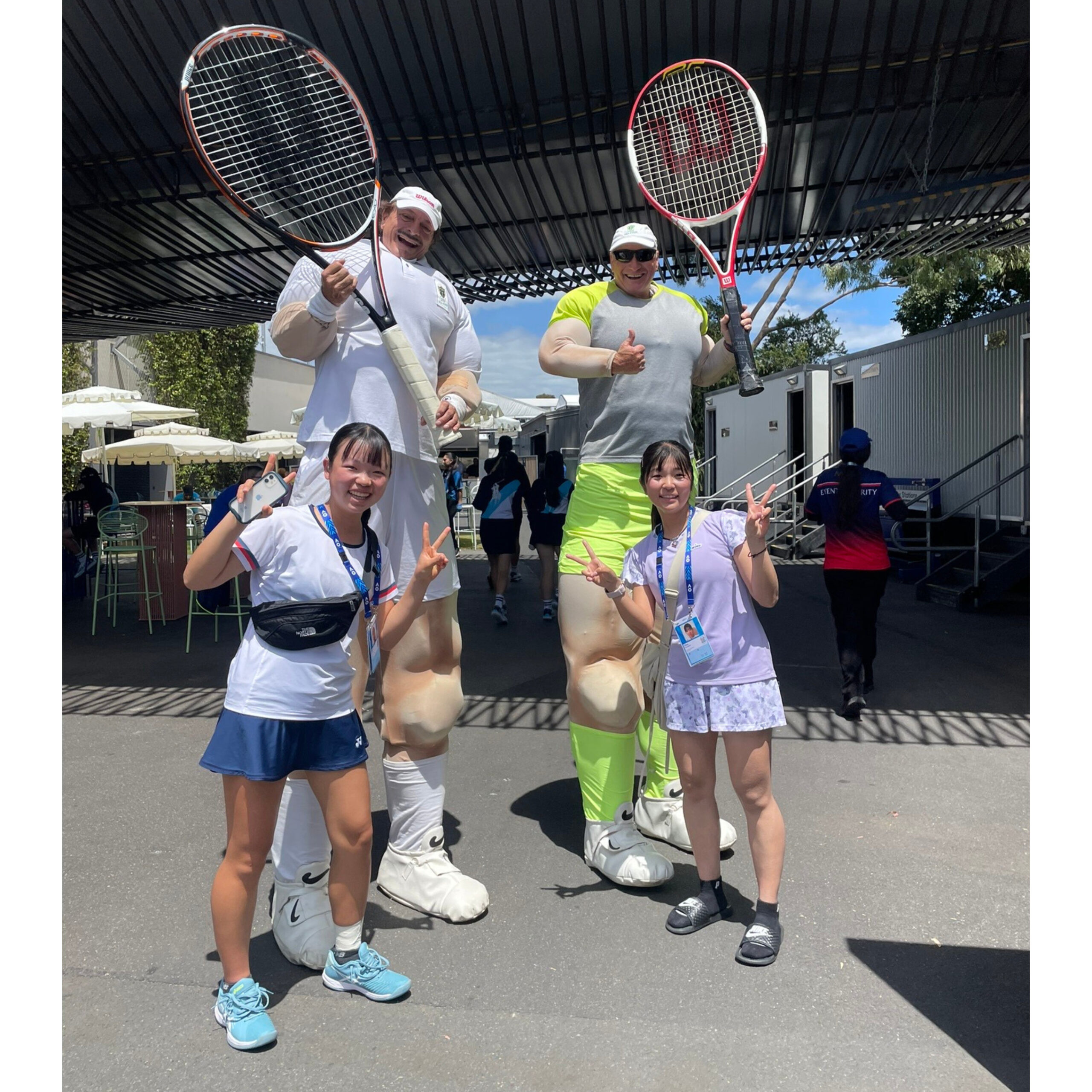
To be mutually beneficial to each other.
(Left bottom is Riko Suzuki)*Courtesy of Rina Komokata
――Are there any athletes you interact with in other sports?
I really don’t know many deaf players…But for the first time, I had the opportunity to meet deaf athletes from other sports! This is Hiroto Kitadani, an athletics athlete at Osaka University of Health and Sport Sciences. He is a pole vault athlete and he won at the Caxias do Sul 2022 Deaflympics. Knowing that we are the same age and from the Kansai region, I was surprised to find such a great athlete close to me. He has been very encouraging, sending me comments when I have achieved good results.
――Finally, do you have a message for our readers who are looking forward to the Tokyo 2025 Deaflympics?
In tennis, both women and men are doing well, and many Japanese athletes will be competing in other events as well! I hope that many people will come to the venue to cheer for the athletes and try to find various deaf athletes. I’ll be adding more friends so that I can introduce you to more athletes. I would also be happy if the Deaflympics could help people learn a little more about sports for the disabled. I will do my best to make it enjoyable for everyone, so please come and see the games!
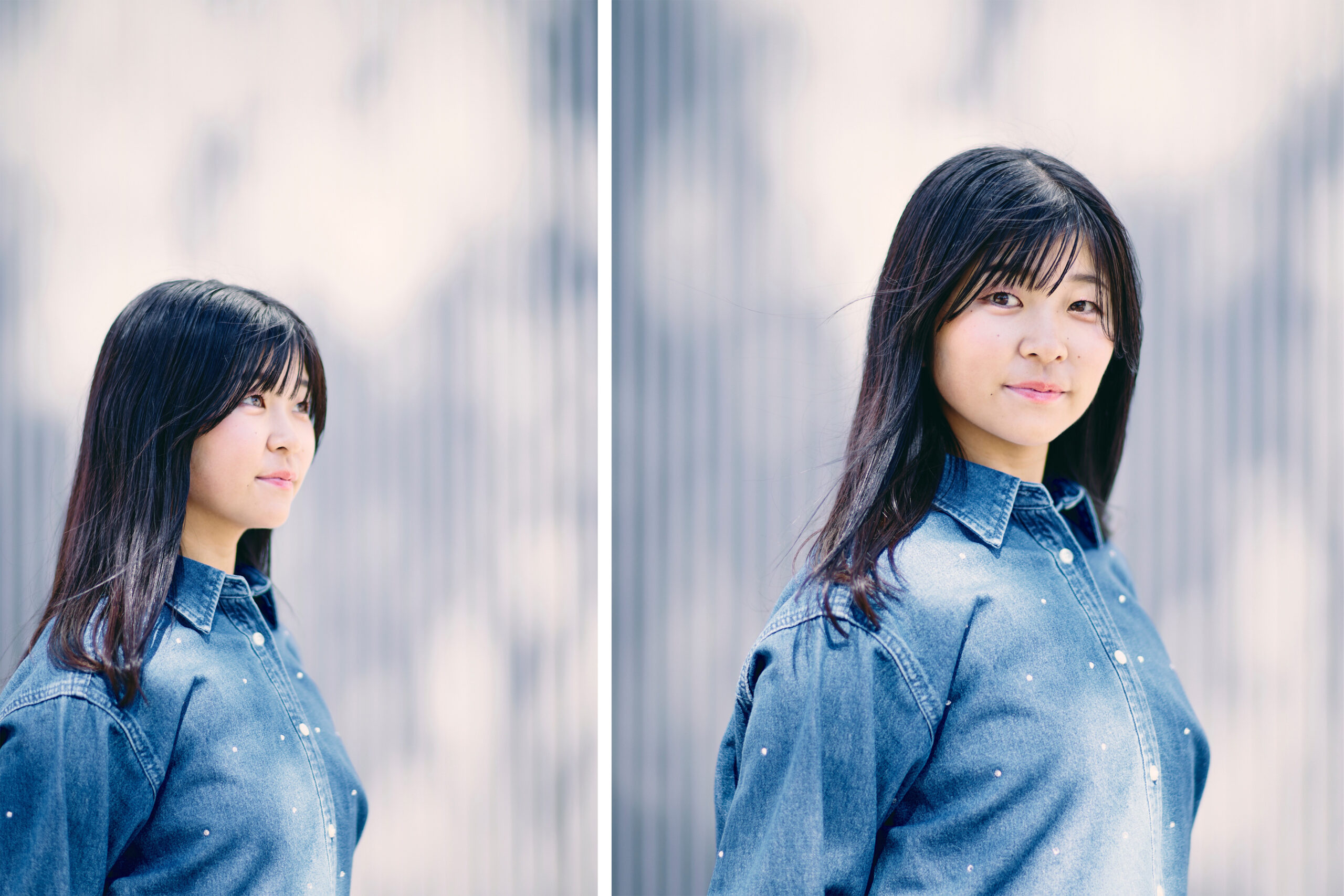
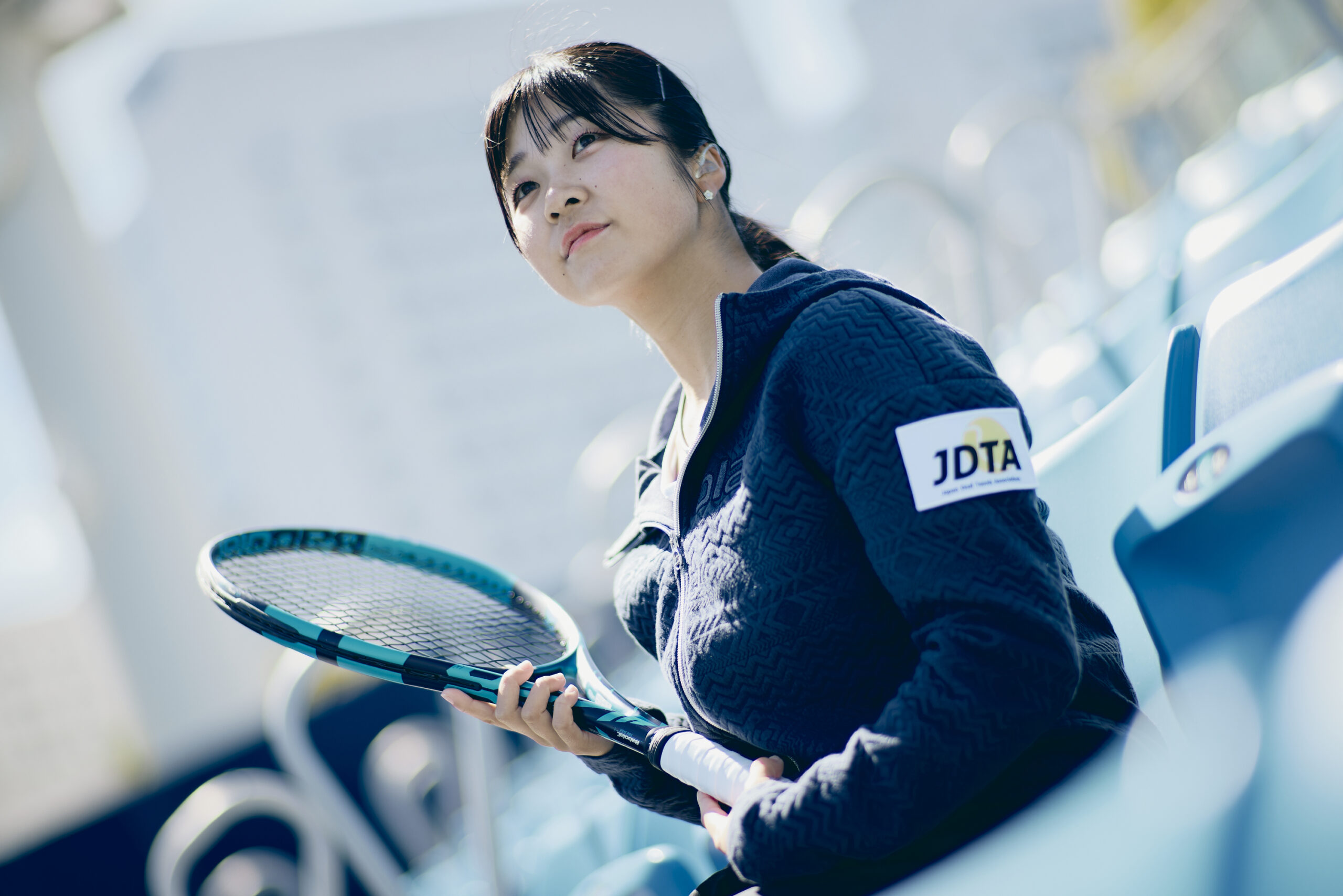
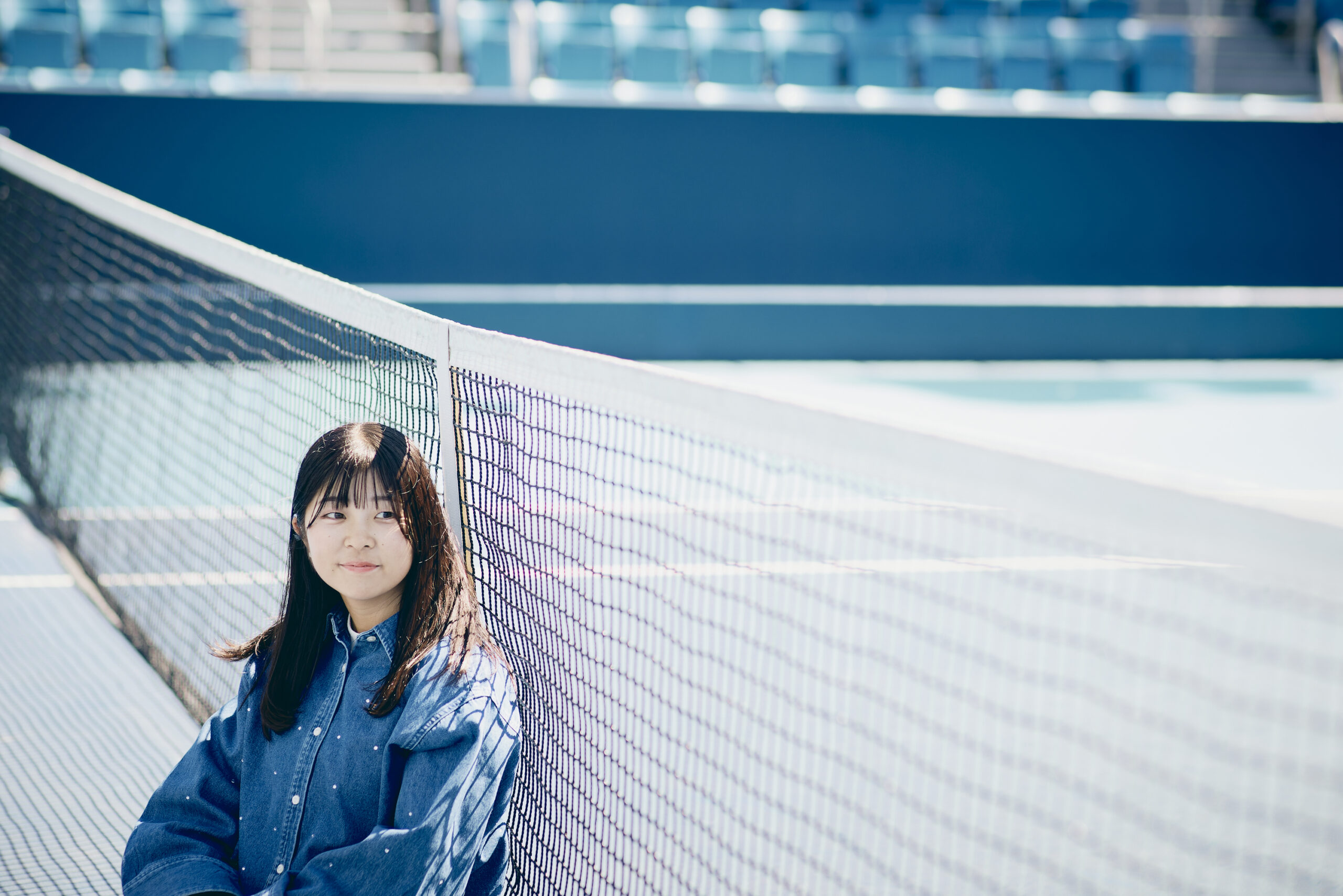
Instagram:komorinn5
text by Rieko Kimura
photographs by Uta Mukuo
